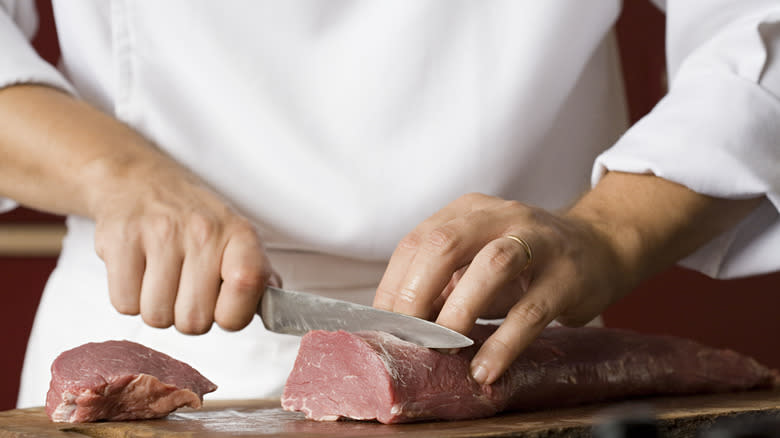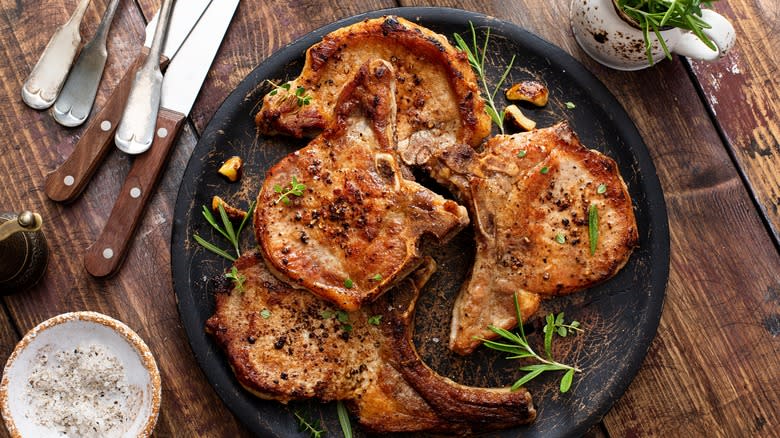The Historical Reason We Call Pig Meat 'Pork'

If you've ever wondered why we call pig meat "pork" instead of, well, "pig meat," there's a historical explanation as to why. It all goes back to the Norman conquest of England in 1066, which revolutionized the English vernacular as the language evolved into an Anglo-Norman French-English hybrid with an enduring Latin influence. Written English started appearing more predominantly in the 1200s, initiating a period of rapidly oscillating Anglo-French amiability and hostility, along with rapidly shifting cultural influences and borrowing, much of which manifested in the linguistic arena. Today, pork comes from the Old French linguistic equivalent "porc." Similarly, beef comes from the Old French word "buef" or "bouef," meaning "cow." Sheep meat becomes "mouton" (later "mutton"), and chicken becomes the Old French "poulet," which later becomes the Middle English "pullet" and eventually "poultry."
Folks started predominantly using the word "pork" to refer to pig meat in writing during the early 1300s, right around the time when Geoffrey Chaucer was writing the "Canterbury Tales" from 1387 to 1400 in the Middle English language. The text is forwarded with a log of the Ambassadors of Aragon's total expenses during their journey, which includes a ledger for food: "meat dish of pork, 13 pence; meat dish of mutton, 2 shillings 8 pence; meat dish of beef, 18 pence."
Read more: The Best Meat For Your Charcuterie Board Isn't One You'd Expect
An Entree Served With A Side Of Power And Money

The period was also characterized by economic disparity, the time of serfs and noblemen, each able to afford drastically different foods and thereby subsisting on vastly different diets — with unique vocabularies to accompany. In other words, the matter of "pork" versus "pig" was a wealth thing. Lower-class Anglo-Saxons were speaking English and hunting or raising the live animals with which the French-speaking upper-class Normans would only interact as a plated meal.
The nobility didn't need a word to refer to a group of cattle because that was largely outside of their bubble of concern. Indeed, it seems like tax bracket has always played a role in determining what culinary experiences people are allowed to access. Before that, during the Medieval Era (500-1500), only wealthy people (or their staff) cooked with recipes because they were the only ones who could afford the paper to write on.
Read the original article on Tasting Table.

